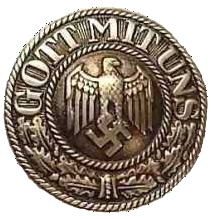Chapter II
The State
ALREADY IN 1920-1921 CERTAIN CIRCLES BELONGING TO THE EFFETE BOURGEOIS class accused our movement again and again of taking up a negative attitude towards the modern State. For that reason the motley gang of camp followers attached to the various political parties, representing a heterogeneous conglomeration of political views, assumed the right of utilizing all available means to suppress the protagonists of this young movement which was preaching a new political gospel. Our opponents deliberately ignored the fact that the bourgeois class itself stood for no uniform opinion as to what the State really meant and that the bourgeoisie did not and could not give any coherent definition of this institution. Those whose duty it is to explain what is meant when we speak of the State, hold chairs in State universities, often in the department of constitutional law, and consider it their highest duty to find explanations and justifications for the more or less fortunate existence of that particular form of State which provides them with their daily bread. The more absurd such a form of State is the more obscure and artificial and incomprehensible are the definitions which are advanced to explain the purpose of its existence. What, for instance, could a royal and imperial university professor write about the meaning and purpose of a State in a country whose statal form represented the greatest monstrosity of the twentieth century? That would be a difficult undertaking indeed, in view of the fact that the contemporary professor of constitutional law is obliged not so much to serve the cause of truth but rather to serve a certain definite purpose. And this purpose is to defend at all costs the existence of that monstrous human mechanism which we now call the State. Nobody can be surprised if concrete facts are evaded as far as possible when the problem of the State is under discussion and if professors adopt the tactics of concealing themselves in morass of abstract values and duties and purposes which are described as 'ethical' and 'moral'.
Generally speaking, these various theorists may be classed in three groups:
1. Those who hold that the State is a more or less voluntary association of men who have agreed to set up and obey a ruling authority.














